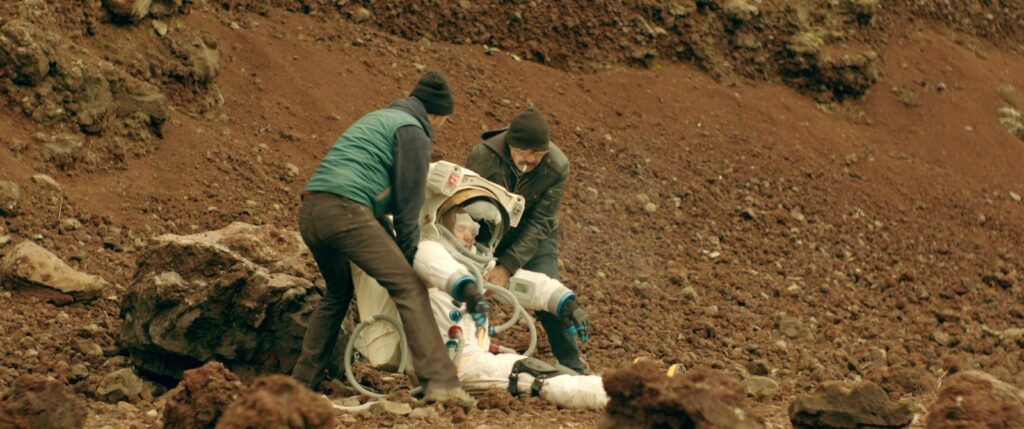LOGLINE
On a day when humanity makes history, two mechanics, caught in the absurdity of their everyday lives, become unwitting witnesses and participants in an impossible encounter—where the mundane collides with cosmic grandeur.

On a day when humanity makes history, two mechanics, caught in the absurdity of their everyday lives, become unwitting witnesses and participants in an impossible encounter—where the mundane collides with cosmic grandeur.
As the world holds its breath during the first human landing on Mars, two mechanics, driving a rickety old car, catch fleeting echoes of the historic moment. But when their journey brings them face to face with the Romanian astronaut, miraculously landed on a lunar-like landscape, the line between the banal and the monumental begins to blur.
Landing on Mars (Amartizare) is a meditation on absurdity and human fragility—a story that juxtaposes the cosmic thrill of a historic achievement with the chaotic minutiae of everyday life. The film explores the boundary between the monumental and the mundane, asking what true greatness really means.
Visually, the film alternates between vast, almost epic wide shots of the lunar-like landscape and intimate details—the grease-stained hands of the mechanics, the rusty car, their bewildered expressions. This contrast reflects the duality of advanced technology conquering the cosmos and the often-comedic improvisation that defines daily survival.
Sound design plays a crucial role: the intermittent crackle of the broken radio, the sharp clatter of the car’s engine, and, ultimately, the incongruity of traditional Romanian music against the grandeur of the moment.
Through this story, I aim to capture the fragile grandeur of the human condition—how our greatest achievements as a species coexist with the absurd, comedic, and deeply profound moments of ordinary life. The film becomes a space for introspection, a meeting point between bittersweet laughter and poetic contemplation.